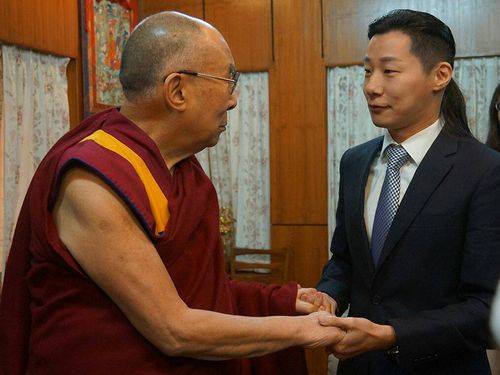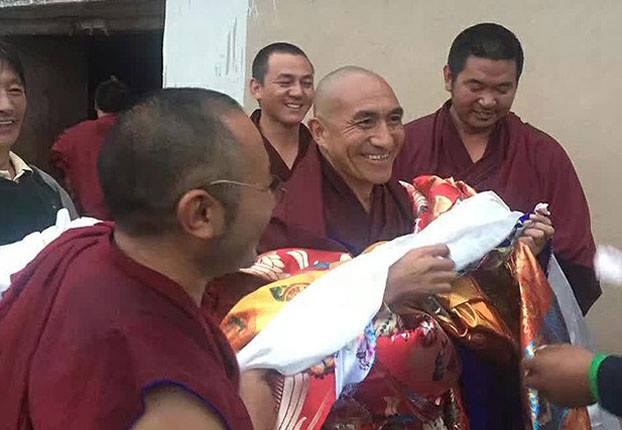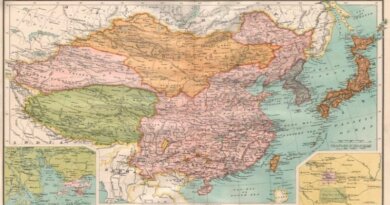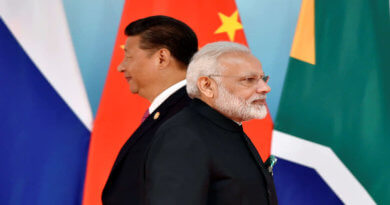Where Do The US Presidential Candidates Stand On Tibet? – OpEd
By N. S. Venkataraman, Eurasia Review | September 5, 2016
When President Obama received the Dalai Lama through the back door in his office a few months back, many eyebrows were raised. Many people justifiably thought that President Obama lacked the courage of conviction to receive the Dalai Lama properly in a manner befitting his stature and reputation as a man of peace.
Obviously, President Obama wanted to receive the Dalai Lama, but was afraid of any adverse reaction from the Chinese government. This act of President Obama created considerable suspicions around the world as to whether the US government makes its policies based on exigencies rather than principles and convictions. This single act of President Obama has damaged the image of US around the world considerably as a champion of freedom.
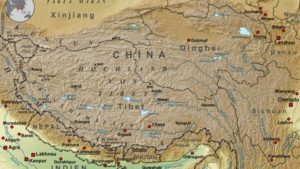
World silent on China’s aggression in Tibet
Tibet is a victim of aggression and onslaught by China, which occupied Tibet by force, with the least consideration on what would be the world opinion about its expansionist policies and acts.
China’s acts of aggression was not effectively challenged by any country in the world including US. Several countries including US only paid lip sympathy to the Tibetans. There were several inconsequential debates in UNO on Tibetan issue which ultimately ended as a mere academic exercise, with speakers talking and leaving the hall and perhaps, forgetting immediately what they spoke.
While the fact is that as of now evil has triumphed over good as far as Tibet is concerned, Tibetans living in exile around the world are frustrated and distressed that the world is not coming to their rescue, to enable Tibetan’s to control their lost mother land.
Are the Presidential candidates concerned?
By President Obama showing timidity by receiving the Dalai Lama through the back door, many Tibetans wonder whether the US could act any time in the future in support of the sovereign rights of the Tibetans. Upon this backdrop, there are great expectations as to what could be the stand of the next US President with regard to Tibet.
Unfortunately, in their campaign speeches, neither Hillary Clinton nor Donald Trump have made any purposeful reference to the plight of Tibetans and the need for the US to help the Tibetans get their mother land back. This makes one wonder as to whether the Tibetan issue is in the back of their minds at all. Even in the US media there is no reference so far to the apparently lack of concern of Presidential candidates to the plight of Tibetans.
Already, there is considerable criticism that despite its commitment to protect human freedom, the policy approach of the USA in the past has always been based on its geopolitical self-interests and not based on its much claimed commitment to freedom and liberty.
In such circumstances, the near silence of the US government in the past on the Tibetan issue and the present Presidential candidates appearance of ignoring Tibet in their strategies and plans, makes one think that Tibetans cannot anymore expect the US government to help them in freeing Tibet from Chinese occupation.
Of course, the next President will also receive the Dalai Lama and other Tibetan personalities (by the front door or the back door), but it may be a cosmetic exercise to window-dress the US government’s policy of commitment to freedom and democracy. But, will it be of any use to the Tibetan cause?
Have the Tibetans campaigned enough?
While the US presidential candidates have not made any reference to the cause of Tibet so far, is it possible that they have failed to do so due to a lack of adequately loud and strong campaign by the Tibetans in exile, seeking such assurance of support from the presidential candidates?
In any case, better late than never, Tibetans and their friends around the world should appeal to the US Presidential candidates to make a public statement on their stand on Tibet.
As the election is not far away, Tibetans have no time to lose and certainly there will be understanding and support from a cross section of US citizens, if Tibetans would voice their expectations to the presidential candidates.
 N.S. Venkataraman is a trustee with the “Nandini Voice for the Deprived,” a not-for-profit organization that aims to highlight the problems of downtrodden and deprived people and support their cause. To promote probity and ethical values in private and public life and to deliberate on socio-economic issues in a dispassionate and objective manner.
N.S. Venkataraman is a trustee with the “Nandini Voice for the Deprived,” a not-for-profit organization that aims to highlight the problems of downtrodden and deprived people and support their cause. To promote probity and ethical values in private and public life and to deliberate on socio-economic issues in a dispassionate and objective manner.

